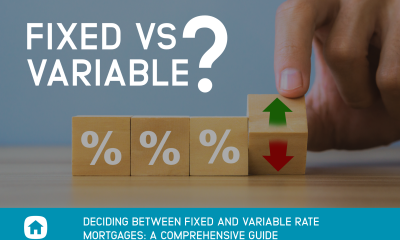The swift economic fallout from the spread of the novel coronavirus has many Canadians thinking about their financial well being, particularly those who are approaching or at retirement age.
Which means for millennials, now is as good a time as any to have ‘the talk’ with your aging parents.
Conversations around end-of-life planning — like retirement savings, moving houses, or accepting live-in care — are often wrought with emotion, even “at the best of times,” says Dr. Moira Somers, financial psychologist and family wealth consultant in Winnipeg.
“It encompasses what we value the most and what we fear the most, and as a result, sometimes things can get tender or tough in ways that people may not be fully prepared for,” she says.
But the emotional stakes are exactly what keep people from taking the leap into starting these conversations, says Dr. Somers. It feels easier to continue to put off talk of end-of-life planning until personal disaster strikes — but pandemic or otherwise, broaching the topic early on will make emergencies that much easier to handle once they arrive.
“We wait until there’s a crisis … we wait until somebody’s had a bad fall and they’re feeling really vulnerable and really scared and then we start talking to them about whether it’s time to move, and then their back gets up immediately,” she says. “And it does not go well.”
Dr. Somers says the best way to avoid pushing heavy talks into the near-distant future is to set a firm date to have them. Send your parents a calendar invite for a Skype session (or in a post-social isolation world, invite them for coffee or brunch), and stick to it. “We do better when we have dates in mind; we’re less likely to just kind of punt it at that point,” Dr. Somers says.
In advance of the talk, think through how you’ll open up the floor for dialogue, and key topics you hope to prioritize. In Dr. Somers’ experience, the “big five” questions worth asking are: “How will you know when it’s time to stop driving? How will you know when it’s time to accept help for your finances? How will you know when it’s time, either to move into a place with more support or to allow more support into your house? How will you protect yourself against the fraudsters? And have (you) communicated their wishes, about end of life, health care matters, and has that been written down?”
It can’t hurt to give your parents a note of warning, either. No one likes feeling ambushed, Dr. Somers notes, so let them know what you want to talk about and give them room to mentally prepare.
Try saying “I want to talk about what your hopes would be for aging,” Dr. Somers suggests. “Just make it clear what your intentions are, that you’re doing this because you want to honour them.”
Framing the conversation as an empowering one is also key. While end-of-life changes, like moving homes or accepting live-in-care, are typically wrought with feelings of lost control, giving your parents the reassurance that you’re there to help them see their wishes to fruition can be a positive way of framing discussion.
There’s also a way to make the conversation mutually beneficial — if you’re seeking guidance with your own will, for example, try asking your parents for advice and using this conversation to open up the floor to talk about their own end-of-life plans.
Alim Dhanji, senior financial planner at Assante Financial Management agrees that framing is everything. The Burnaby, B.C.,-based financial planner often hosts “family meetings” between his millennial clients and their aging parents to discuss retirement, asset transfers, and other end-of-life arrangements. He says entering the conversation with a willingness to listen and support is key to moving things along positively.
“Let parents know that they’re still in control, because at the end of the day you don’t want millennials to say, ‘well I know everything and this is how things should be,’” Dhanji says. “It should be more of a joint discussion.”
He also notes that the sooner these conversations happen, the better — for both parties. As economic precarity and a collapsing stock market threaten the well being of Canadians across all generations, it’s worth finding peace of mind where you can. Knowing that your parents will be okay is a start — but you can only get there if you’re willing to talk about it.
“It relieves a lot of stress,” he says. “Just knowing, being aware of their situation, making sure that you know that they are going to be okay as well … and then (you) just have to worry about (you).”
This report by The Canadian Press was first published March 24, 2020.
Audrey Carleton, The Canadian Press

 Buying a Home5 years ago
Buying a Home5 years ago
 Credit6 years ago
Credit6 years ago
 Business4 years ago
Business4 years ago
 5 Mortgage Secrets7 years ago
5 Mortgage Secrets7 years ago
 Buying a Home6 years ago
Buying a Home6 years ago
 5 Mortgage Secrets6 years ago
5 Mortgage Secrets6 years ago
 News12 months ago
News12 months ago
 Business4 years ago
Business4 years ago




